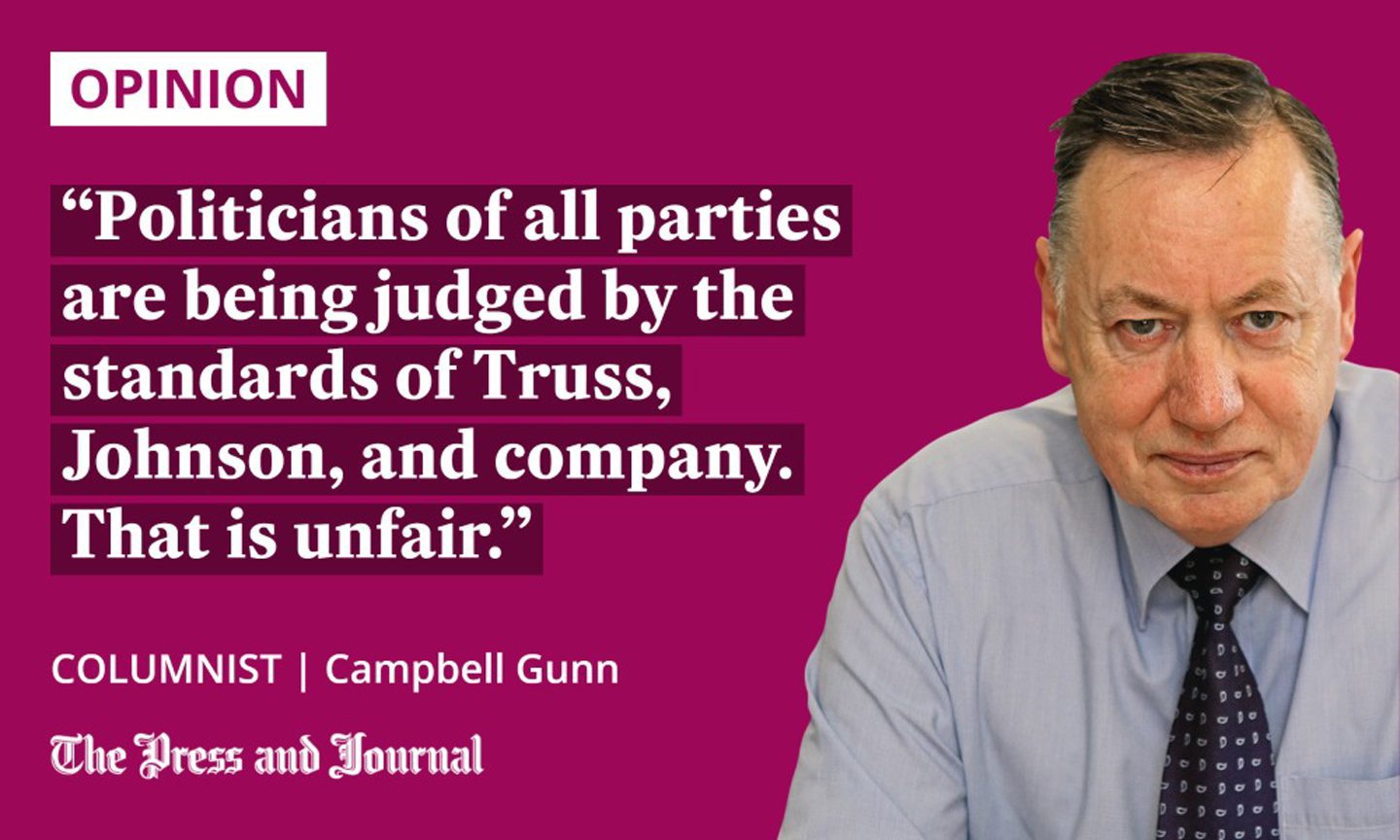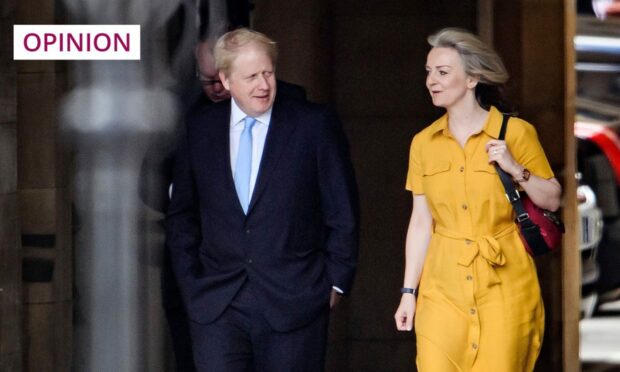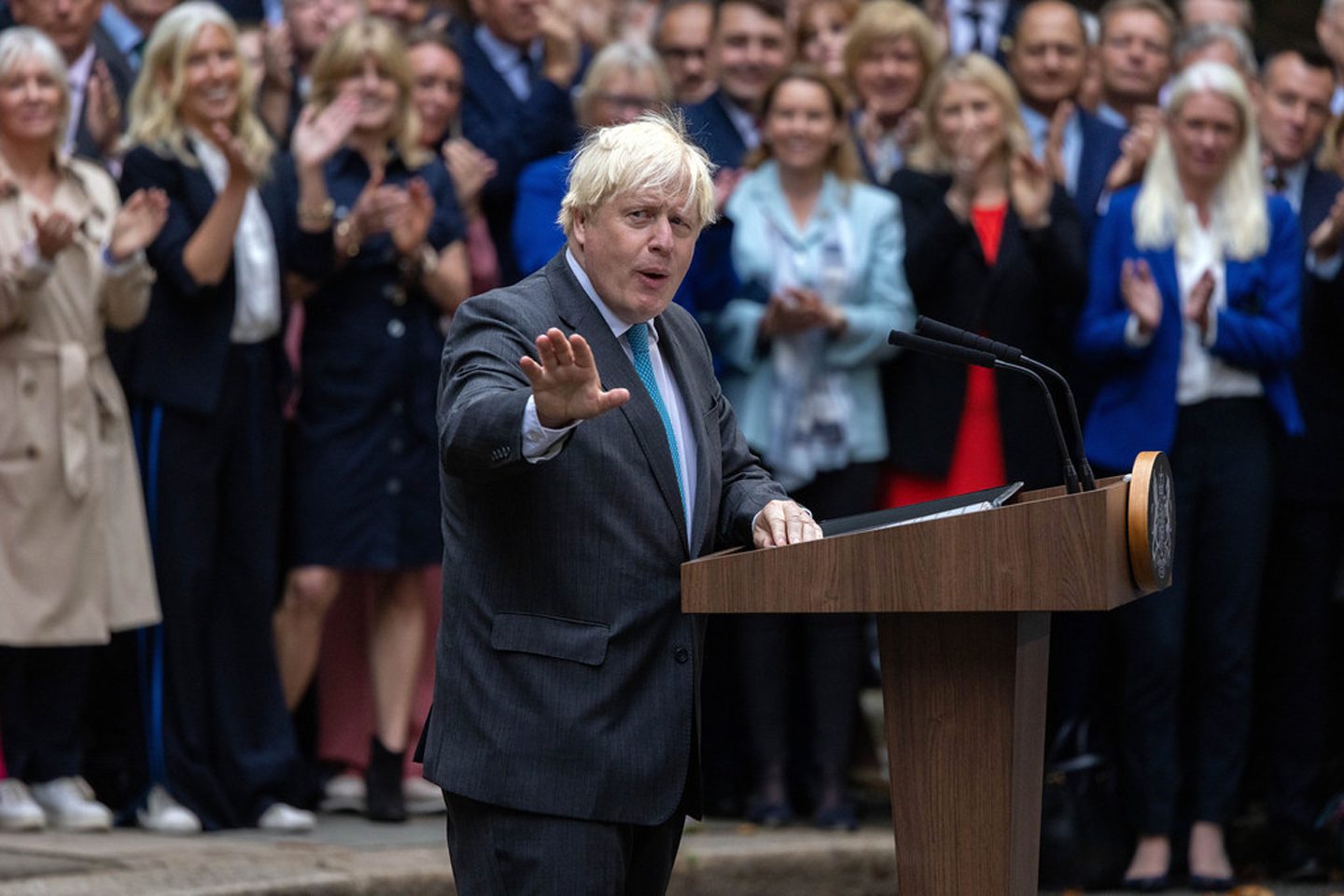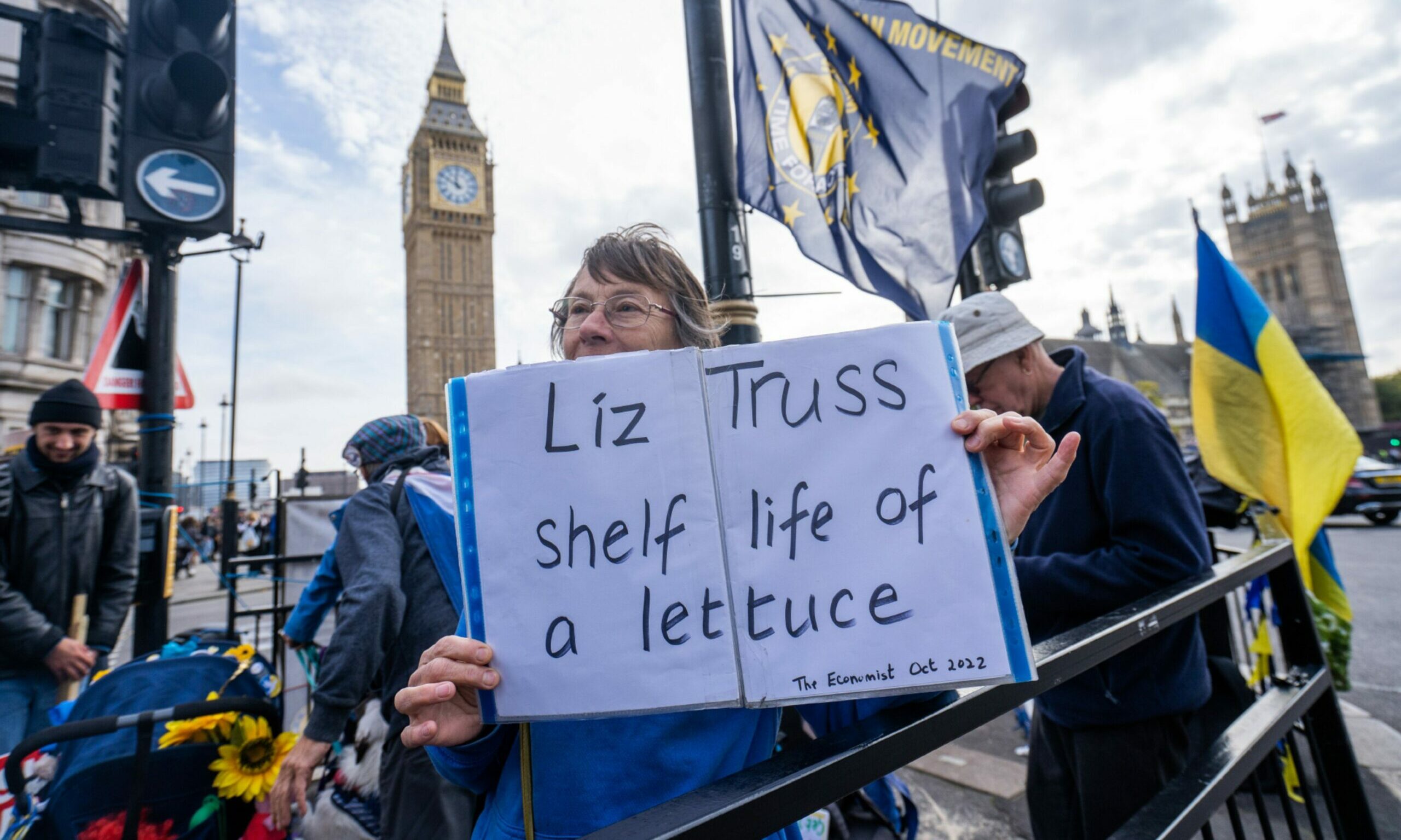One of my friends, someone with no day-to-day involvement in politics, was dismissive last week of all the shenanigans going on at the moment.
“They’re all in it for themselves,” was his view of the current crop of politicians. That isn’t a view I’ve shared in all my years covering politics.
Whether I agree with them or not, I’ve always believed that the overwhelming majority of people who take the onerous step of standing for election do so with the best of intentions. They believe that their view of how we should be governed, whether that be right-wing, left-wing, nationalist, or otherwise, would be best for the country.

However, the events of the past few days and weeks have given me pause for thought. The actions of some elected members of the Conservative Party, both at cabinet and backbench level, have been motivated, I believe, not by what is good for the country, but by what appears to be beneficial to themselves.
Many of the so-called “red wall” Tories, elected in 2019 under Boris Johnson’s leadership, clamoured for his return, not because they believed he’s a great leader, who could turn around the fortunes of the United Kingdom, but because they thought his return might save their own skins.
They appeared to forget the fact that he’s still facing the prospect of a Privileges Committee hearing in the Commons over claims that he “misled” (lied) to the House. If found guilty, he will, in all likelihood, be suspended from parliament.
What were the motivations behind backing Boris?
What would be the point of installing a new prime minister who is promptly barred from attending parliament?
They claimed, too, that his return would be for “the national good”. This, of a man who, for the past couple of weeks, while parliament has been sitting and wrestling with the problems facing the economy, has been sunning himself in the Caribbean. Hardly the action of a sitting MP who cared deeply about his job.
And, for those who declare that Johnson is a proven winner, having delivered the Conservatives a massive general election victory in 2019, remember that this was against a Labour Party led by Jeremy Corbyn.
Am I being too cynical in my summing up of the present difficulties in which the Conservative Party finds itself? I don’t think so
Then there have been the declarations of support by MPs for the other possible candidates for the Tory Party leadership.
Were they all motivated by the belief that one particular man or woman was the right person for the job? Or, is it more likely that they believed a public declaration might land them a nice little earner in a position in government, if their chosen candidate won the contest?
Some Tory MPs are giving politics a bad name
Am I being too cynical in my summing up of the present difficulties in which the Conservative Party finds itself? I don’t think so. Their troubles are self-inflicted.
Who in their right minds saw Liz Truss as the answer to the party’s problems, following its defenestration of Boris? And, now, we’ve seen them fighting like ferrets in a sack as they select their new leader.
Of course, there are still honourable people in the Conservative Party, as well as in the others, but sometimes it is difficult to spot them among the self-seekers.
Perhaps given the circumstances, beleaguered MPs can be forgiven for pursuing self-preservation. However, it certainly isn’t beneficial for the governance of the country, and gives politics, in general, a bad name.
Majority of politicians still have principles
How those of us with long memories yearn for a return to the days when politicians held themselves to higher standards, resigned on matters of honour, and stood on principle.
In 1947, Hugh Dalton resigned as chancellor when one minor detail of his budget was leaked in a newspaper. In Scotland, in 2001, First Minister Henry McLeish resigned over a simple mix-up around the sublet of his constituency office.
In an earlier age, someone found guilty of breaking a law which he or she had actually introduced would have resigned on the spot. Not someone like Boris; not today.
Yet, I still believe that the majority of those who seek office do have principles, even in the Conservative Party. But the past weeks have diminished Westminster politics immeasurably. Mud sticks, and not always where it should.
Politicians of all parties are being judged by the standards of Truss, Johnson, and company. That is unfair.
Too many members of the public and, I have to admit, too many of my former journalistic colleagues, are all too ready to agree with my friend, and believe that everyone in politics is in it for the wrong reasons.
Once the new prime minister is in place, it is up to politicians of all parties to act with honour and principle once again, in an effort to restore some badly needed confidence in their profession.
Campbell Gunn is a retired political editor who served as special adviser to two first ministers of Scotland, and a Munro compleatist




Conversation